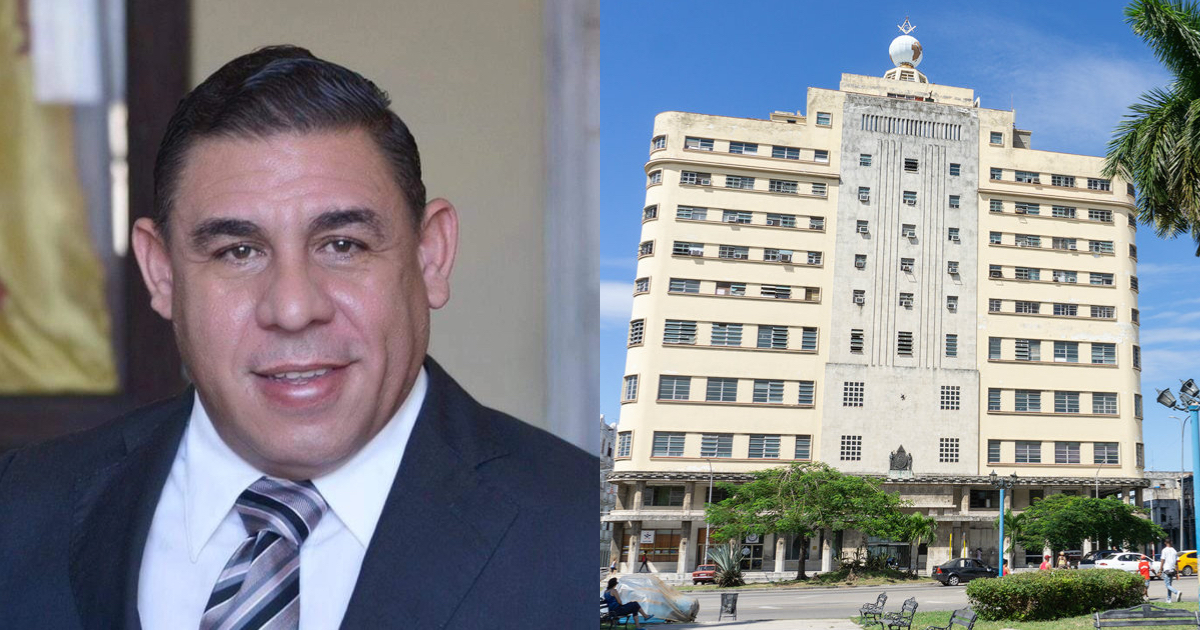
What should be and has always been a discreet organization is now embroiled in scandal after scandal in Cuba. Four Masonic lodges on the Island have been suspended after refusing to recognize the leadership of Grand Master Mario Urquía, who is highly questioned after opposing compliance with his expulsion, decreed by the Supreme Council in January of this year, following the theft of $19,000 from his office.
According to Cubanet, the suspended lodges are Evolución, from Artemisa, and the Havana lodges General Guillermo Moncada, Luz de Marianao, and Carlos Manuel de Céspedes. The sanction affecting them, imposed four days after the protests outside the Grand Lodge of Cuba, will remain in effect until the next session of the High Chamber, as Urquía believes they are violating the laws, the Masonic Constitution, and the Ancient Limits of Freemasonry.
The Grand Master of the Lodge of Cuba, Mario Urquía, sent a message on July 24 to the nearly 200 Cuban masons who protested on the 23rd in front of the Grand National Masonic Temple, demanding his resignation from office. In a message that Cubanet accessed, Urquía criticized that some members of his jurisdiction placed their personal interests "above the interests of the Institution." Additionally, he noted that the demonstration started in front of the building and ended in the lobby on the 11th floor, in front of the Grand Master's office.
In that letter sent to the Freemasons, Urquía attacks independent journalist Camila Acosta, whom he accuses of possessing information that "a layperson" should not have access to, and denounces the alleged infiltration of dissenting elements in the Grand Lodge. "There have been clear signs from some brothers of directly attacking government institutions with marked political positions, which for many are disguised as supposed Masonic motives," he stated.
According to testimonies collected by Cubanet at the demonstration in front of the Grand Lodge of Cuba, the Freemasons explained that they were there protesting after the Ministry of Justice of the Island reinstated Urquía after he was expelled from his positions for "attacking morality" and "for treason to his principles." Therefore, the protest was not only against the Grand Master, but also against the regime's interference in the internal issues of Cuban Freemasons.
A notice from the Grand Lodge of Cuba, published through the information board located at the entrance of the National Masonic Temple, calls all lodge presidents to a meeting this Thursday with Caridad Diego, head of the Office for Fraternal and Religious Affairs of the Central Committee of the Communist Party of Cuba, which will take place at the Government headquarters in Old Havana.
The trigger for this conflict was decree 1791 of July 19, with which Urquía suspended the Treaty of Friendship and Mutual Recognition between the Grand Lodge of Cuba and the Supreme Council. In this way, he shattered two centuries of Masonic unity and peace, as it forces Masons to choose between one institution and the other, putting the international recognition of the Cuban order at risk.
On the same July 23, the Ministry of Justice of Cuba issued an informative note stating that it had detected "irregularities due to non-compliance with its internal statutes" following the expulsion of the Grand Master, and thus ordered "to carry out those processes again in accordance with the statutes and the will of its members."
Finally, the Cuban government yielded to protests from the Freemasons and agreed to hold elections. This is an unprecedented event in the history of Cuban Freemasonry, which included demonstrations against the Grand Master of the Order, who was expelled for corruption and reinstated by the regime for being loyal to it.
What do you think?
COMMENTFiled under: